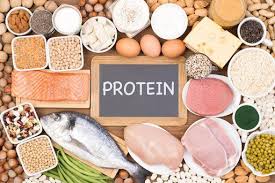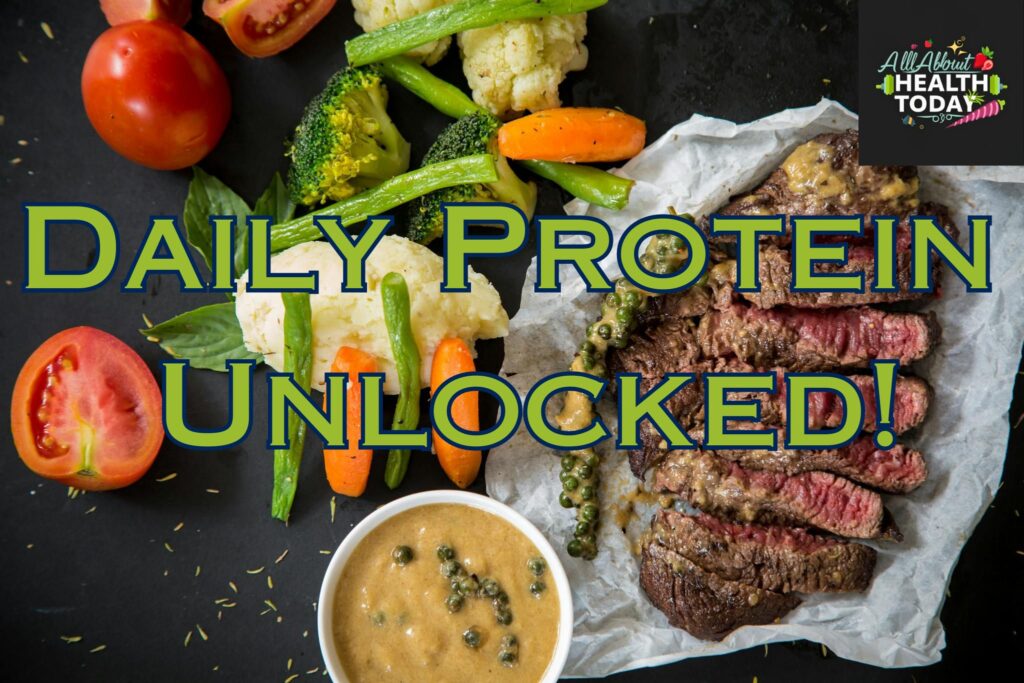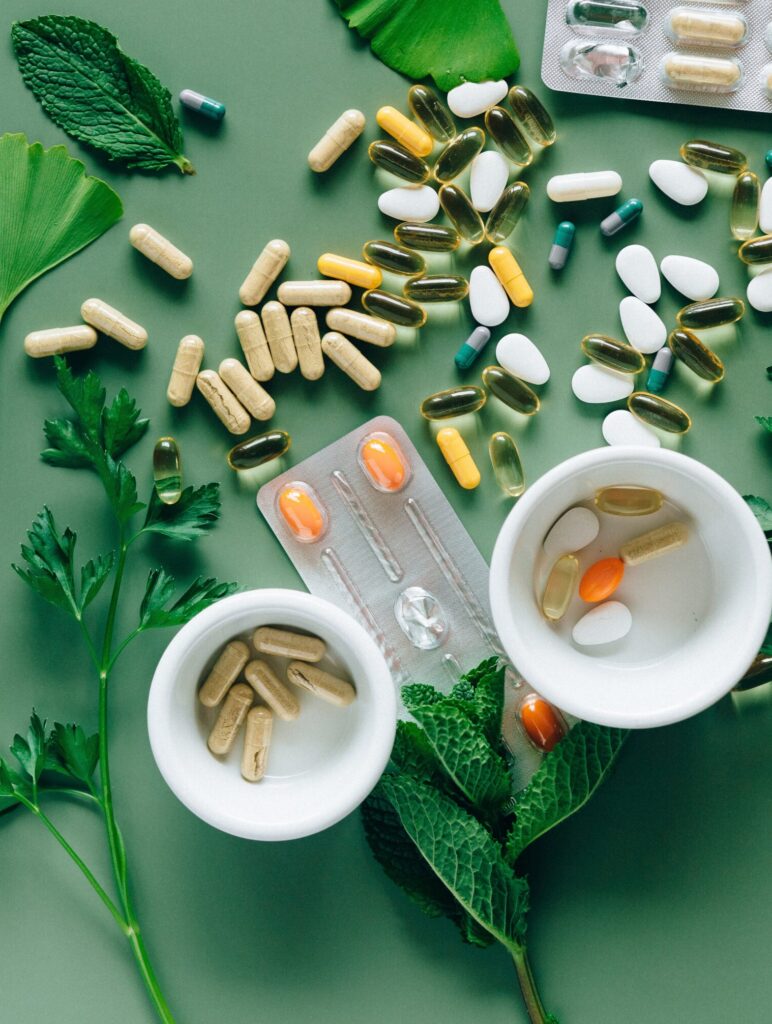Table of Contents
Start Here
Are you constantly bombarded with conflicting information about the ideal amount of protein to include in your diet? You’re not alone. Protein is heralded as the cornerstone of any nutritious diet, fueling everything from muscle repair to bone health. But with so many voices and choices out there, it can be hard to determine what’s right for you, especially as a young adult looking to balance health, fitness, and a busy lifestyle.
Whether you’re an athlete aiming to maximize performance, a fitness enthusiast looking to build muscle, or simply someone trying to maintain a healthy lifestyle, understanding your protein needs is crucial. In this post, we’ll dive deep into the world of protein—how much you need, the best sources, and how to effectively incorporate it into your daily meals. We’ll also touch on our favorite protein-packed products that not only meet your nutritional needs but also taste great! 🏋️♂️
Understanding Protein Needs
Protein is more than just a nutrient; it’s a crucial building block of life, fundamental to almost every biological process in the body. It is composed of amino acids, which are often called the building blocks of muscles. But its role extends beyond muscle repair and growth—it also supports immune function, hormone production, and cell repair.
The amount of protein you need can vary widely based on several factors, including age, gender, weight, and activity level. According to the Dietary Reference Intake report for macronutrients, the average adult needs 0.8 grams of protein per kilogram of body weight per day. For a 70 kg (approximately 154 lbs) adult, that equates to about 56 grams of protein daily. However, if you’re physically active, recovering from an injury, or looking to gain muscle, your needs may increase to 1.2 to 2.0 grams of protein per kilogram of body weight.
Decoding these numbers into everyday eating habits doesn’t have to be complicated. For instance, 56 grams of protein could be met with two eggs for breakfast (12 grams), a grilled chicken breast for lunch (30 grams), and a serving of Greek yogurt for a snack (14 grams).
While it’s beneficial to consume enough protein to meet your body’s needs, it’s also crucial to spread your intake throughout the day, which can help in maximizing muscle repair and growth. Research suggests that consuming protein at each meal, in amounts from 20-30 grams, optimally supports muscle health.
Interested in a quick protein fix? Check out our top protein powder picks! 🏋️♂️
Pros and Cons of a High Protein Diet
Embracing a high protein diet comes with a host of benefits, particularly if you’re active. Increased protein intake helps build and repair muscles, especially important after intense workouts. It also aids in weight management by increasing satiety—the feeling of being full—thus reducing overall calorie intake. Studies have shown that people who eat a higher protein diet tend to consume fewer calories throughout the day because protein helps control the hormones that regulate appetite.
Moreover, protein has a higher thermic effect compared to fats and carbohydrates, meaning your body uses more energy to digest it, which can boost metabolism and increase calorie burn. This makes protein an essential player in weight loss and maintenance strategies.
However, while a high protein diet can be beneficial, it’s important to be mindful of potential risks. Excessive protein intake, particularly from animal sources, has been linked to kidney strain in people with preexisting kidney disease, increased cancer risk, and other health issues. It’s crucial to balance protein sources, incorporating both animal and plant-based proteins, and to ensure that your diet remains rich in other essential nutrients like fibers, vitamins, and minerals.
Boost your workout recovery with this BCAA drink! 💪
Balancing the benefits and risks of a high protein diet requires thoughtful consideration of your overall health and activity level. By choosing your protein sources wisely and monitoring your body’s response, you can safely enjoy the benefits high protein has to offer.
High-protein foods Sources and How to Use Them
Identifying the right sources of protein is crucial for maximizing its benefits while keeping your diet varied and enjoyable. Protein comes from both animal and plant sources, each offering unique advantages.

Animal-Based Protein
Animal proteins such as meat, poultry, fish, eggs, and dairy products are considered “complete” proteins because they contain all nine essential amino acids necessary for human health. For those curious about specific amounts, a common question like “how much protein is in an egg?” can have a surprising answer: a single large egg contains about 6 grams of high-quality protein, making it an excellent choice for muscle repair and growth.
Plant-Based Protein
On the other hand, plant-based proteins like beans, lentils, tofu, and quinoa are not only good sources of protein but also bring additional nutrients such as fiber, vitamins, and minerals. Combining different plant-based proteins can ensure you get all essential amino acids, making them as effective as animal sources. A cup of cooked lentils, for example, offers about 18 grams of protein.
Practical Tips for Incorporating Protein into Your Diet
- Breakfast: Start your day with a protein-rich breakfast like Greek yogurt or a smoothie with protein powder to fuel your morning activities. Consider adding a couple of eggs to your meal for a quick protein boost.
- Lunch and Dinner: Include a lean protein source at every meal. For instance, add grilled fish to your dinner or toss a handful of almonds into your salad at lunch.
- Snacks: Opt for snacks that contribute to your protein intake, such as a hard-boiled egg, a piece of cheese, or a protein bar.
Stay hydrated with our top electrolyte drink pick! 🥤
By diversifying your protein sources and integrating them into each meal, you can enjoy a balanced diet that supports your lifestyle and health goals without monotony.
Conclusion
Understanding and managing your daily protein intake is more than just a dietary choice; it’s a pathway to achieving optimal health and fitness goals. Whether you’re looking to build muscle, lose weight, or simply maintain a healthy lifestyle, protein plays a pivotal role in your diet. By balancing your protein sources and ensuring you’re getting the right amounts based on your individual needs, you can make informed decisions that enhance your overall wellbeing.
Remember, it’s important to listen to your body and adjust your protein intake as necessary. Everyone’s requirements are different, and what works for one person may not work for another. Keep exploring different protein sources and find the right balance that suits your dietary preferences and health requirements.
As you continue on your health journey, don’t forget to check out our recommended protein powders and other supplements that can help you meet your daily protein needs efficiently and deliciously. 🏋️♂️💪🥤
We hope this guide has empowered you with the knowledge to confidently manage your protein intake and has encouraged you to make healthier choices every day. Here’s to a stronger, healthier you!
If you’ve made it to the end, why not share this with a friend and help us bring useful information to more people at home.







